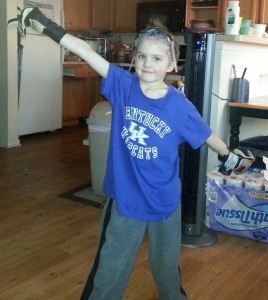Last weekend, I received word that a friend’s seven-year-old son, Luke, was in ICU after a near-drowning incident. I kept near-constant vigil at my computer during my waking hours, anxiously waiting for updates, and when I got the news that Luke had died, I took it very hard. As a human being, as a parent, as the mother of a seven-year-old boy – this tragedy hit very close to home.
As I have tried to make sense of the emotions that have been swilling around in my head all week, I have grappled with the question of what to tell my younger son, James.
The concept of death is not new to James. He got a rude introduction to it in Kindergarten, when his teacher died of pneumonia. The teacher had been very popular among the kids; James had absolutely adored him, and had a hard time understanding that he’d never see him again.
In the three years since then, he has developed a reasonably healthy attitude to the fact that people die. He asks about his grandfathers and how they died, and he talks about angels and souls and stuff like that. He is sad when people close to us die, but he accepts that it is part of the circle of life.
This is different, though. Old people dying is part of the circle of life. Children dying is an idea that just doesn’t fit. The mere thought of it has a jarring effect, as if you’re listening to soft classical music and hear a sudden blast of ear-splitting heavy metal. I wasn’t sure if James was ready to be introduced to this concept, especially since he had never met Luke.
Just as I had decided not to tell him, he came up to me as I was looking at a picture of Luke that his mother had posted on her Facebook wall. He asked me about the little boy in the picture, and I found myself telling him that Luke was now an angel. This led to a discussion that was hard for both of us.
For all his bull-in-a-china-shop approach to life, James is a sensitive child with a natural sense of empathy, and he was genuinely sad as he looked at Luke’s picture. He talked about how he’d never get to play with Luke, and he expressed concern for Luke’s mother.
“She must be so sad,” he said. “Is she going to be OK?”
I told him that yes, Luke’s mother was very sad, and I assured him that she had lots of people around her who would make sure she was OK.
There was a pause, and then he said, “Mommy, if I died, would you be OK?”
I couldn’t answer him. I was too busy trying to hold my rapidly dissolving composure. I just held him as close to me as I possibly could.
A few minutes later, his little voice piped up again.
“Mommy, I’m scared. Kids can die, and there are so many ways to die.”
This was a tough one. How was I going to strike the balance between realism and reassurance? I couldn’t say, “Don’t worry, it won’t happen to you or your brother”, especially since this whole discussion had arisen from an unexpected tragedy. And I couldn’t say, “Yes, accidents can happen at any time”, because that would freak the poor child out and make him afraid of leaving the house.
And so I decided to focus on probabilities. If we only cross the street when the pedestrian light is green, there’s far less chance of being hit by a car. If we don’t answer the door to strangers, they won’t kidnap us. If we eat the right foods and run around in the back yard every day, we will get sick less often and we’ll get better faster.
In other words, staying safe and healthy does not guarantee that something won’t happen, but it does vastly improve our chances. It’s good to be cautious and mindful of potential danger, but we have to live our lives.
As I spoke to James, his fears seemed to ease. Since then, he has returned to the topic a few times, and as hard as it is, I am glad that the original discussion opened a door for him to talk about a subject that is important.
Later on that day, James came up to me and said, “Mommy, I’m still sad for Luke’s mommy, but I’m not so worried about her anymore.”
“Why is that?” I asked.
“Because Luke is still alive in her heart, and he can hug her from the inside.”
This is an original post by Kirsten Doyle. The picture of Luke is reproduced with the kind permission of Janice Zimmerman.











